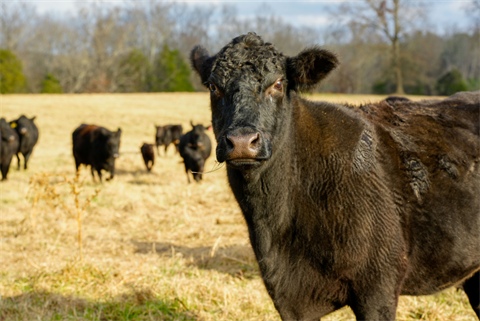Voluntary Ag Districts help maintain important Cabarrus farmland
Published on July 21, 2025

Agriculture has played a pivotal role in Cabarrus County since its founding, with more than 64,000 acres dedicated to farming efforts.
In 2006, Cabarrus was one of the first North Carolina counties to enact the Statewide Farmland Preservation Program, which helps protect land vital to local food production. Officials are now reviewing and enhancing the local implementation of that program, known as Voluntary Agricultural Districts.
As a part of conservation efforts, farmers can enroll land as a Voluntary Agricultural District. Signing land parcels into the program commits to keeping the land within agricultural use, granting it protections from threats such as urban development and other non-farm use.
To qualify, members must have at least 10 acres of land dedicated to agriculture within the present use tax value.
Enhanced Voluntary Agricultural Districts require a commitment of 10 years as a true conservation easement, which is recorded on the deed. In Cabarrus County alone, over 150 members remain in good standing with the program. Currently, more than 5,000 acres of land is committed to maintaining agriculture.
Members of the program are entitled to legal safeguards such as protection against nuisance suits and representation at hearings and meetings. In addition to protecting farmland, Voluntary Agricultural Districts help give a voice to the agricultural community.
The programs are designed to help properly balance the shift from agricultural land to development.
Tommy Barbee, a fifth-generation farmer, has experienced that shift firsthand. He grew up surrounded by farmland. But now, “in our area of the county, we're the only farm within 20 miles,” he said. Most of the farmland around him has been sold or repurposed, he noted.
Sarah Newman, livestock and field crops agent at Cabarrus NC Cooperative Extension, is a Cabarrus County native who’s experienced the challenges faced by farm owners. She understands the importance of creating a community that maintains and celebrates farmland and those who care for it.
Newman works closely with the Voluntary Agricultural District program. She introduces farmers to the program, assists in the application process and verifies that land parcels meet the basic requirements. Farmers then sign the conservation agreement, and the application is sent to the Cabarrus Agricultural Advisory Board.
“There are a lot of farmers, ranchers and producers here in Cabarrus County that want to have a voice and want to continue to advocate for agriculture within their community spaces,” Newman said.
Once in the program, members maintain regular contact with Newman, especially now that the program is being restructured and reorganized.
Enhancements to the program include updating the current mapping system and revising the current ordinance.
Cabarrus County Attorney Douglas Hall is updating the ordinance, as well as strengthening the enforceability of easement documents, which is especially useful when properties change ownership.
“We want to make sure we are doing everything as a county to preserve agricultural lands for future generations,” Hall said.
To learn more about Voluntary Agricultural Districts, visit https://cabarrus.ces.ncsu.edu/ or contact Newman at 704-920-3310 or sarah_newman@ncsu.edu.